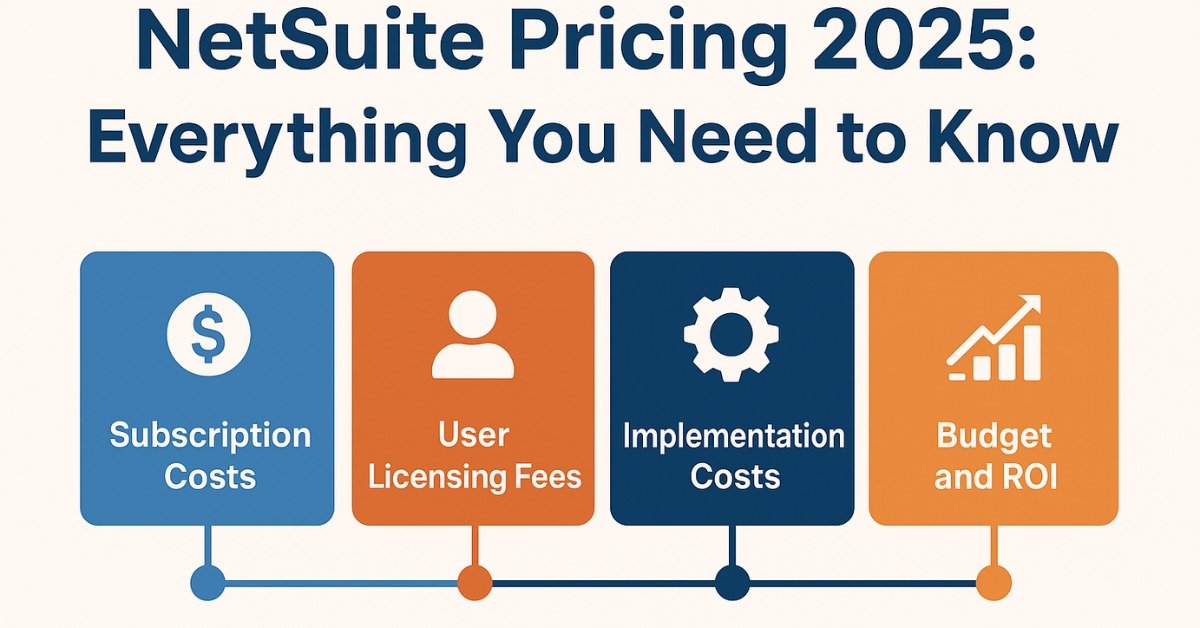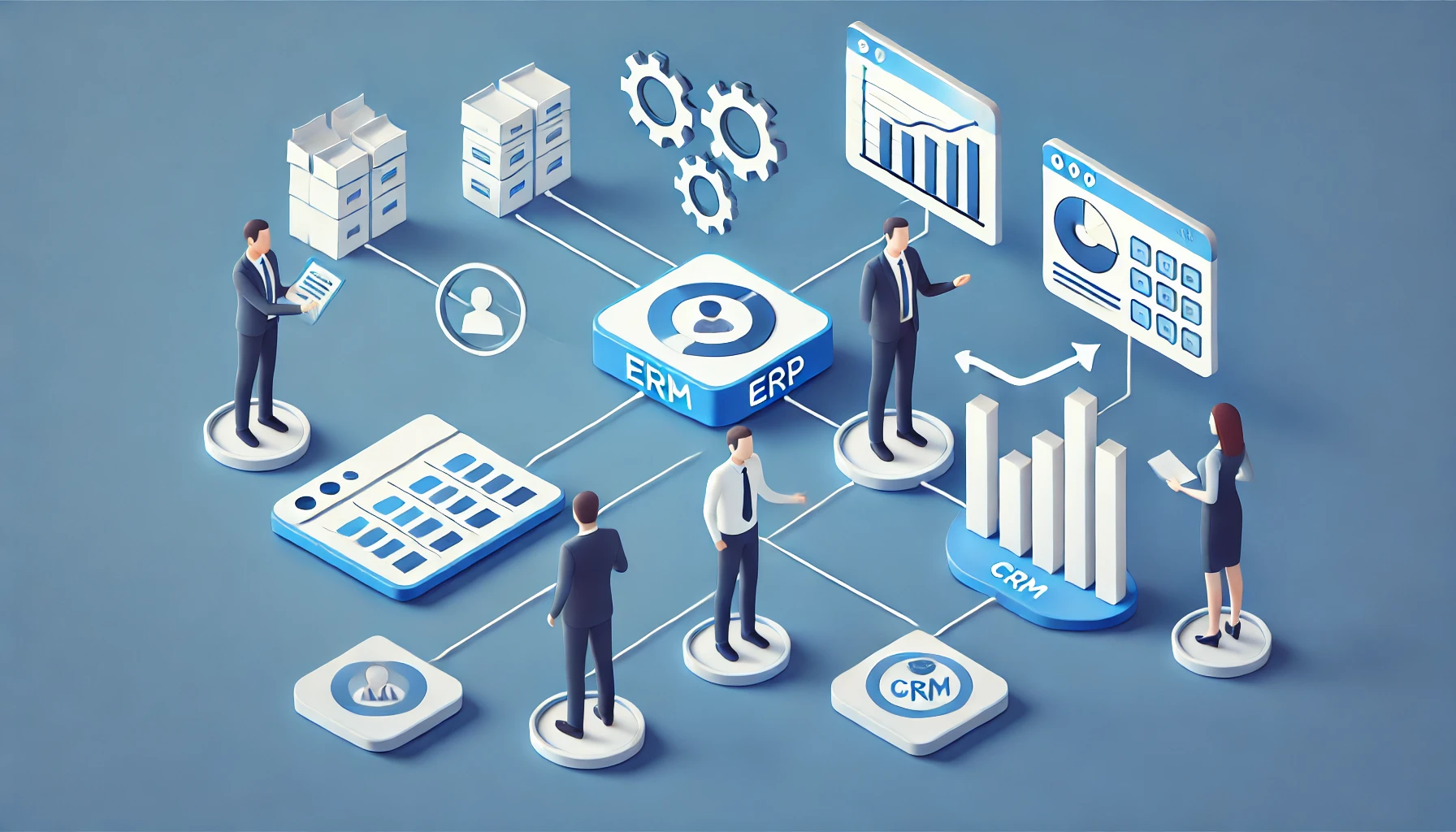Table of Contents
ToggleIntroduction: The ERP Conundrum Unravelled
Greetings, esteemed business visionaries and decision-makers! In an era where digital transformation is no longer a luxury but a necessity, the ERP landscape has become a veritable labyrinth of options, innovations, and intricacies. Amidst this dynamic backdrop, two industry stalwarts have emerged as front-runners, commanding attention, admiration, and scrutiny in equal measure: NetSuite vs. Fishbowl.
As we navigate this intricate ecosystem, envision a scenario akin to charting uncharted territories, where each turn presents opportunities, challenges, and decisions that shape the trajectory of your organization’s future. The stakes are high, the variables multifarious, and the implications far-reaching, making the ERP selection process a cornerstone of strategic planning, operational excellence, and competitive differentiation.
Our expedition today transcends mere comparison; it’s a holistic exploration, a deep dive into the DNA of these ERP titans. We’ll dissect their multifaceted features, scrutinize their unique value propositions, and unravel the complexities that define their capabilities, limitations, and potential impact on your organization’s success.
Prepare to embark on an enlightening journey that transcends conventional wisdom, challenges preconceived notions, and equips you with the insights, knowledge, and perspective needed to navigate the ERP landscape confidently. Whether you’re a seasoned veteran seeking to optimize operations, a visionary leader driving digital transformation, or an entrepreneur charting new horizons, this expedition promises to illuminate the path forward, empowering you to make informed, strategic decisions that propel your organization to new heights of innovation, efficiency, and growth.
So, buckle up, embrace the spirit of exploration, and let’s unravel the ERP conundrum together. Ready to embark on this transformative journey? Your roadmap to success awaits, and the adventure begins now!
NetSuite: The Pinnacle of Comprehensive Cloud Solutions
Overview:
NetSuite stands as a paragon of cloud-based ERP solutions, offering an expansive suite of functionalities meticulously crafted to streamline diverse business operations. From robust CRM capabilities to intricate financial management tools and e-commerce platforms, NetSuite’s comprehensive ecosystem aims to be the quintessential solution for businesses striving for operational excellence.
Key Features:
- CRM Integration: NetSuite’s embedded CRM module empowers businesses to cultivate customer relationships, manage sales pipelines, and optimize marketing initiatives through actionable insights and analytics.
Financial - Management: NetSuite’s financial modules encompass a broad spectrum of functionalities, including accounting, budgeting, revenue recognition, and financial planning, ensuring fiscal integrity, compliance, and strategic financial management.
- E-commerce Capabilities: NetSuite’s e-commerce platform facilitates the creation of immersive online storefronts, enabling businesses to enhance customer experiences, manage inventory, and drive revenue growth through personalized marketing strategies.
Pros:
- Scalability: NetSuite’s cloud-native architecture facilitates seamless scalability, accommodating businesses at various growth stages and providing the agility to navigate evolving market dynamics.
- Integrated Functionality: NetSuite’s holistic approach consolidates disparate business functions into a unified platform, fostering operational efficiency, eliminating data silos, and facilitating seamless cross-departmental collaboration.
- Customization: NetSuite’s robust customization capabilities empower businesses to tailor the platform to their specific requirements, industry nuances, and unique operational workflows.
Global Reach: NetSuite’s multinational capabilities facilitate seamless operations across geographies, currencies, tax regimes, and compliance requirements, enabling businesses to penetrate new markets and expand their global footprint effortlessly.
Cons:
- Cost Implications: NetSuite’s comprehensive feature set and robust capabilities come at a premium price point, potentially posing financial constraints for startups, small businesses, or budget-conscious organizations.
- Complexity: NetSuite’s extensive functionalities and intricate interface may overwhelm users new to ERP systems, necessitating comprehensive training, dedicated support resources, and ongoing education to maximize utilization and ROI.
- Implementation Timeframe: NetSuite’s deployment requires meticulous planning, resource allocation, and project management to ensure a seamless transition, minimize operational disruptions, and expedite time-to-value.

Fishbowl: The Inventory Management Maestro
Overview:
Fishbowl carves a niche as an inventory management specialist, offering tailored solutions designed to optimize inventory control, streamline supply chain operations, and enhance operational efficiency for businesses with inventory-centric operations.
Key Features:
- Inventory Optimization: Fishbowl’s sophisticated inventory management tools enable businesses to track stock levels, forecast demand, automate replenishment processes, and implement lean inventory strategies, thereby reducing carrying costs, minimizing stockouts, and optimizing warehouse operations.
- QuickBooks Integration: Fishbowl’s seamless integration with QuickBooks simplifies financial operations, eliminates manual data entry, ensures data accuracy, and facilitates synchronized data management across inventory, sales, purchasing, and accounting functions.
- Industry-Specific Solutions: Fishbowl’s specialized functionalities cater to businesses across various industries, including manufacturing, distribution, retail, and wholesale, with unique inventory management requirements, compliance mandates, and operational complexities.
Pros:
- Inventory Management Excellence: Fishbowl excels in optimizing inventory control, leveraging advanced forecasting algorithms, real-time analytics, and automated workflows to enhance supply chain efficiency, reduce carrying costs, and minimize stockouts.
- QuickBooks Integration: Fishbowl’s seamless integration with QuickBooks streamlines financial operations, eliminates redundant data entry, ensures data consistency, and facilitates accurate financial reporting, reconciliation, and analysis.
- Industry-Specific Solutions: Fishbowl’s industry-specific functionalities address the unique inventory management challenges, compliance requirements, and operational nuances inherent to manufacturing, distribution, retail, and wholesale sectors, thereby enhancing operational performance, customer satisfaction, and competitive advantage.
Cons:
- Functionalities: Fishbowl’s primary focus on inventory management may limit its applicability for businesses requiring comprehensive ERP functionalities, including CRM, financial management, human resources, and e-commerce capabilities.
- Integration Constraints: Fishbowl’s compatibility primarily with QuickBooks may pose integration challenges for businesses utilizing alternative accounting software, ERP systems, or specialized third-party applications, necessitating additional customization efforts, middleware solutions, or manual data synchronization processes.
The Comparison: NetSuite vs Fishbowl Unveiled
Scalability:
NetSuite: Boasts seamless scalability, empowering businesses to navigate various growth stages, diversify product lines, penetrate new markets, and expand their global footprint with agility and confidence.
Fishbowl: Designed primarily for inventory-centric businesses, Fishbowl’s scalability may be constrained for organizations requiring comprehensive ERP functionalities, multi-departmental integration, or industry-specific solutions beyond inventory management.
Functionality:
NetSuite: Delivers a comprehensive suite of integrated functionalities, including CRM, financial management, e-commerce, human resources, supply chain management, and business intelligence, fostering operational efficiency, data-driven decision-making, and strategic alignment across the organization.
Fishbowl: Specializes in inventory management, offering industry-specific solutions tailored to optimize supply chain efficiency, enhance warehouse operations, and minimize carrying costs, while providing limited functionalities in other ERP domains such as CRM, financial management, e-commerce, and human resources.
Customization:
NetSuite: Offers extensive customization capabilities, enabling businesses to tailor the platform to their specific requirements, industry nuances, operational workflows, user preferences, and compliance mandates, thereby fostering a personalized user experience, optimized processes, and enhanced organizational productivity.
Fishbowl: Provides customization capabilities primarily focused on inventory management, warehouse operations, and supply chain optimization, with limited scope for comprehensive ERP functionalities, industry-specific solutions, or cross-functional integration beyond inventory-centric processes.
Integration:
Fishbowl: Excels in QuickBooks integration but may pose challenges for businesses requiring integration with alternative accounting software, ERP systems, e-commerce platforms, CRM applications, or specialized third-party solutions, necessitating additional customization efforts, middleware solutions, or manual data synchronization processes.
Conclusion: Navigating the ERP Landscape
In the riveting NetSuite vs. Fishbowl showdown, understanding their respective features, functionalities, pros, and cons is paramount to making an informed, strategic decision that aligns with your business’s unique needs, priorities, and long-term objectives. NetSuite’s comprehensive cloud solution excels in scalability, integrated functionalities, customization, and global reach but comes with cost implications, complexity, and implementation challenges. Conversely, Fishbowl’s inventory management specialization shines in optimizing supply chain efficiency, enhancing warehouse operations, and facilitating QuickBooks integration but may fall short in offering.



